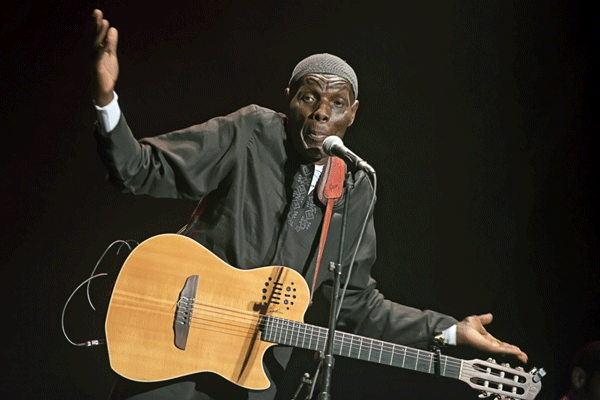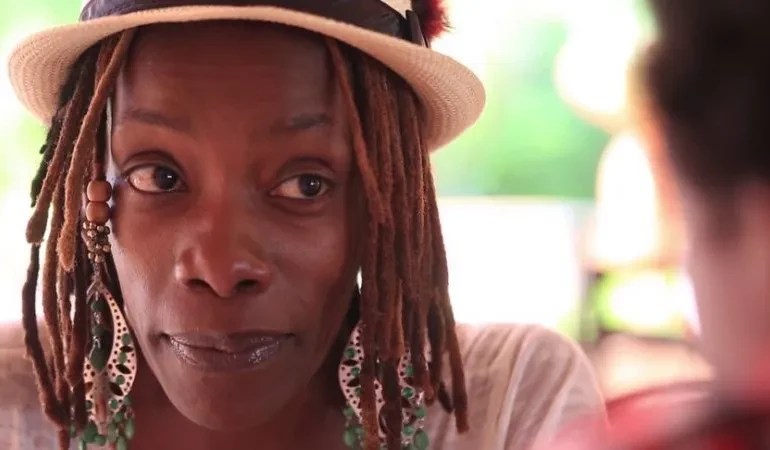
IS it that arts consumers and some players in the industry have sharpened the art of being cry babies who find faults in everything that has been introduced or their sentiments are an honest assessment of the obtaining situation?
BY WINSTONE ANTONIO

Developments in the past weeks on the showbiz scene where some people have cried foul on the appointments of the new Censorship Board and National Arts Council (NACZ) boards left many people with more questions than answers.
First it was an outcry over the appointment of President Robert Mugabe’s daughter, Bona Mugabe-Chikore into the new 11-member Censorship Board by Home Affairs minister Ignatius Chombo.
The board chaired by former Cabinet minister Aeneas Chigwedere, which will be in office for the next five years is composed of members from the Zimbabwe Republic Police, church organisations, traditional leaders, lawyers and accountants.
They are police spokesperson Senior Assistant Commissioner Charity Charamba, Bulawayo provincial administrator Konzani Ncube, Catholic priest Father Fidelis Mukonori and Shingai Rukwata Ndoro.
The appointment of NACZ’s nine-member board by Rural Development, Promotional and Preservation of National Culture and Heritage minister Abednico Ncube in terms of the NACZ act of 1985, chapter 25:07did not escape the backlash either.
Music legend Oliver “Tuku” Mtukudzi (pictured) is among the members of the board that will serve for the next three years and is chaired by Great Zimbabwe University former pro-vice chancellor of Herbert Chimhundu.
- Chamisa under fire over US$120K donation
- Mavhunga puts DeMbare into Chibuku quarterfinals
- Pension funds bet on Cabora Bassa oilfields
- Councils defy govt fire tender directive
Keep Reading
Other members include former Bulawayo town clerk Moffat Ndlovu, AB Communications Group CEO Susan Makore, businessman Max Tshuma, Professor Ruby Magosvongwe, former legislator Japhet Dube, Dorcas Savanhu and Witness Zhangazha.
Ncube said the new board was expected to oversee NACZ’s affairs, foster development of arts and improve the knowledge, understanding and practice of the arts.
He said the board will play a critical role in ensuring the alignment of the NACZ Act of 1985 with the Constitution while at the same time implementing the National Arts, Culture and Heritage Policy.
Meanwhile, the appointment of the board has been received with mixed feelings by stakeholders in the arts industry.
Internationally-acclaimed poet and writer Mbizo Chizo Chirasha said the inclusion of Tuku in this board will bring positive results in the arts.
“I see new faces. I believe Tuku will do greatly on this one. I think with Tuku if utilised properly there will be a great turnaround in the area of arts in Zimbabwe, given that he has endured a lot in his career and his arts governance skills are proven,” he said.
“The others are former board members of failed projects. I think it must not be about friendship, coffee drinking nominations, political affiliation, popularity or the other, but something top with issues of merit, arts governance capacity, tolerance, fundraising, understanding and a passion for the arts industry.”
Albert Chimedza said it was not who was on the board that mattered but what they offered was important.
“At the moment I cannot really judge until they tell us their vision for the arts and how they are going to execute that vision. It is not who is on the board, but what they do on it that is important,” he said.
Theatre artist-cum political activist, Silvanos “Banditi” Mudzvova said no matter how good the board might be on paper, there was little to expect as long as the NACZ’s reforms were not effected.
“We can put thousands boards for NACZ, but it will not change anything. There are recommendations made by several previous boards about reforming the organisation that have not been implemented. There is need to follow the once proposed recommendations,” he said.
“We need a modern day arts council that is fully functional and the board should have guts to restructure the arts council. As long as that is not done, we will celebrate inclusion of artists in boards, but in reality it will not improve artists’ welfare.”
African Roots music exponent and sculptor Bryn Taurai Mteki said the new board excluded other arts genres.
“While I am celebrating the appointment of our own Dr Oliver Mtukudzi in this new board, I have the displeasure on the continuous marginalisation of sculpture. It would have been most welcomed if anyone from the three dimensional arts was part of the board,” he said.
“The country should realise that Zimbabwean stone sculpture has impacted the whole world with no competition. It is unfortunate that the stakeholders may have ignored or not yet realised that Zimbabwe stone sculpture is probably the only pride of our national culture and heritage of Zimbabwe.”
However, music critic Fred Zindi was confident that the board will deliver.
“I think it is a progressive board. I know all the members and I am sure they will conduct a sterling job in moving the arts forward. I wish them all the best. Perhaps one day the government will begin to take the arts more seriously,” he said.
Arts promoter Plot Mhako said; “I would like to applaud the minister for the appointments. There was a genuine effort to have a multi-sectoral inclusive board which is key for the broad advancement of the arts in Zimbabwe. Mtukudzi, Makore and Chimhundu bring in vast knowledge and experience which I believe will be vital. The only thing that is missing from this board is the youth representation, a generation to which most artists belong.”











